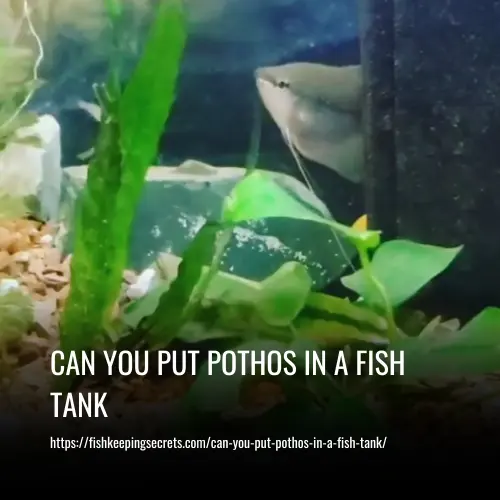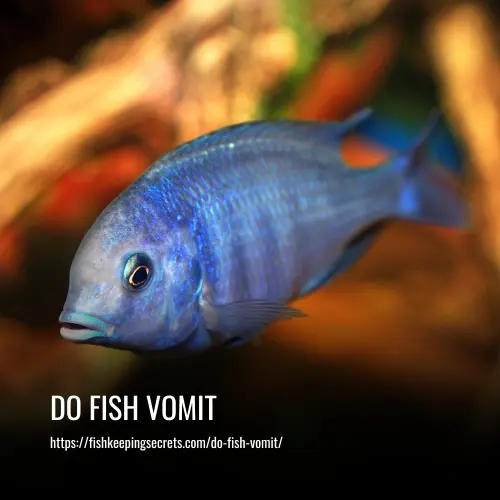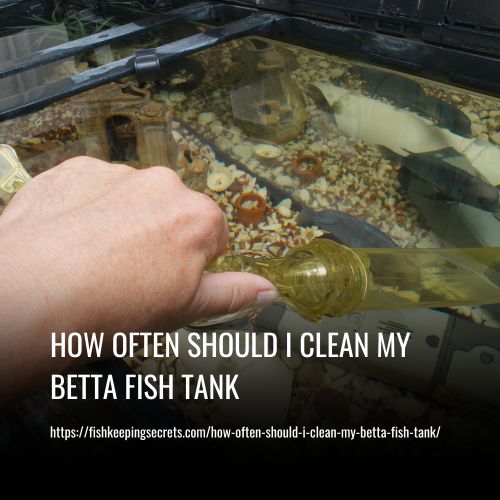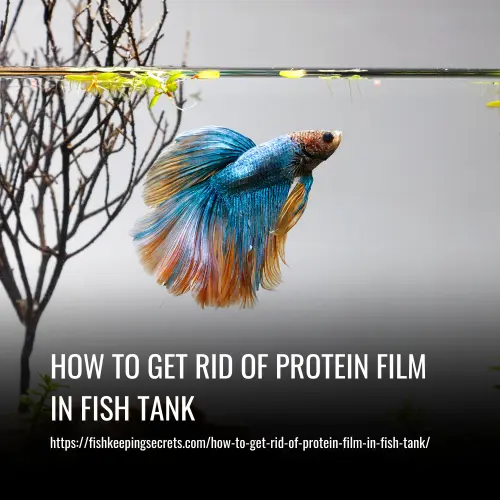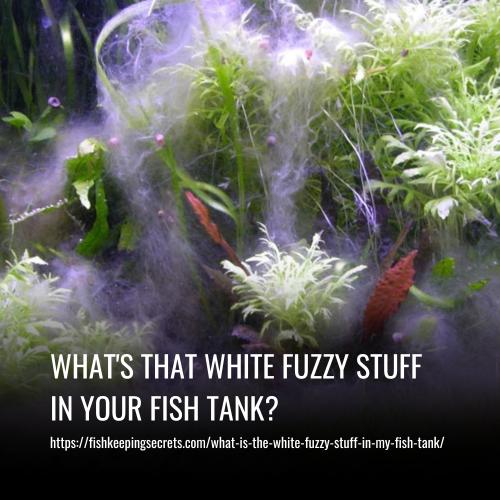Can You Over-filter A Fish Tank? Filtration In Aquariums.
This post contains affiliate links. As an Amazon Associate, we earn from qualifying purchases.
Yes, it is possible to over-filter a fish tank. While filtration is important for maintaining water quality, excessive filtration can remove essential nutrients and beneficial bacteria, which can negatively impact the overall health of the aquarium. It is important to find the right balance of filtration for your specific tank and the needs of the fish and plants within it.
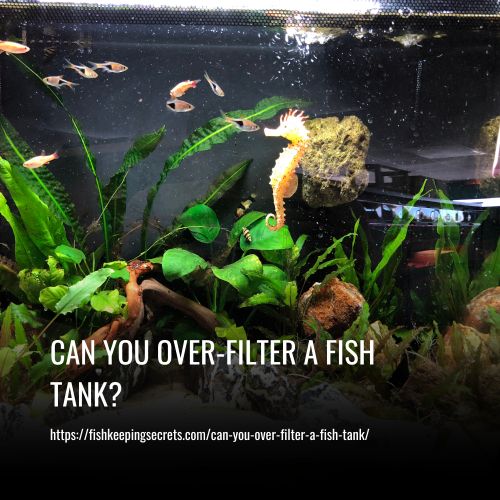
What Happens If You Over-Filter a Fish Tank?
One may think that more filtration is always better, but the truth is that there can be negative consequences of over-filtering a fish tank. While it may not harm the water quality, introducing the wrong type of filtration system or one that is too powerful for your tank could lead to other problems.
One common issue with over-filtration is creating too much current in the tank, which can be stressful for fish and hinder the growth of aquatic plants. Additionally, weaker fish could get caught in the strong current and even get sucked into the filter.
Excessive filtration may cause starvation among shrimp, a type of filter feeder, as they cannot locate enough debris to consume. Therefore, when choosing and implementing filtration systems for an aquatic environment, it is crucial to exercise caution to maintain a thriving and healthy habitat.
How to Pick the Right Aquarium Filter for Your Fish Tank?
Choosing the right aquarium filter is crucial for maintaining a healthy and thriving ecosystem for your fish. It’s important to select a filter that fits the unique needs of your particular fish tank. If you’re not knowledgeable about each fish’s living and ecosystem requirements, it’s recommended to consult an expert in the field.
Several factors affect the type of filter required for your aquarium, such as the size of your tank, the amount of water in it, and its flow rate. Additionally, considerations like the type of ecosystem (saltwater vs freshwater), and the number and size of fish need to be taken into account.
To have an effective filtration system for your tank, a general rule of thumb is to filter four times per hour or more. This can be calculated by determining how many gallons of water your tank can hold. For instance, if you own a 20-gallon (76-liter) tank, you will need an 80 GPH (Gallon per hour) filter.
Finding the right aquarium filter is vital for keeping your fish healthy and happy. By taking into account various factors specific to your tank and consulting with an expert aquarist or fishkeeper, you can identify the best filtration system that suits your aquatic pets’ needs.
Can I Use 2 Filters in a Fish Tank?
If you’re wondering whether it’s possible to use two filters in your fish tank, the answer is yes. In fact, many experienced fish keepers recommend using dual filters for several reasons.
Firstly, having an extra filter serves as a backup in case one fails. Secondly, fish tank filters require certain bacteria colonies to function properly, and some fish keepers opt to cycle an additional filter or purchase a used one to ensure they always have a cycled filter available.
Moreover, using 2 smaller filters on either side of the tank can offer more even filtration and may be preferable to one single large and powerful filter that could overwhelm your tank. Overall, using two filters in your fish tank can be a practical and effective solution for maintaining a healthy aquatic environment for your fish.
Can You Have Too Big a Filter in a Fish Tank?
Choosing the correct filter size for your fish tank is crucial. Opting for a larger filter than recommended can be damaging for your aquatic pets and plants. A filter that is too big can cause excessive water flow, which may harm your fish or plants. Furthermore, smaller fish may get caught in the filter’s suction.
Different types of fish have varying filter requirements. Larger fish like cichlids need bigger filters, while species like betta fish prefer slower water movement and are better suited for smaller filters. Therefore, it’s important to research the specific needs of your aquatic pets before investing in a new filter for their tank.
How Do I Know If My Fish Tank Filter Is Too Strong?
Determining whether or not your fish tank filter is too strong is crucial for the health of your fish. One way to tell is by observing their behavior. If you notice that they are struggling to swim or seem unsettled, this could be a sign that the current from the filter is too strong. Another indication may be a perpetually full debris trap, even when your tank appears to be clean.
It’s important to take action and reduce the flow of your filter if you suspect it is too strong, as excessive currents can negatively affect your fish’s health by causing fatigue, loss of appetite, or stress. In some cases, a powerful filter can even damage delicate fins. Keep an eye on the activity in your tank and make adjustments as needed to ensure a healthy environment for your aquatic pets.
What Happens if the Filter Is Too Powerful?
It’s important to have a reliable and adequate filtration system for your aquarium, but it is possible for the filter to be too powerful. When this happens, the increased current can make it difficult for fish to swim freely and unimpeded.
Having a filter that is too powerful can cause several negative effects on the surrounding environment. For example, your fish might find it hard to feed themselves, which can lead to malnourishment. Any uneaten food will break down and create waste in the aquarium, significantly impacting the overall ecosystem.
Additionally, fish will need to find a quiet place within the aquarium where the current is not as strong; this could cause them to remain stuck in one area of the tank or be attracted to the filter intake and become stuck.
Overall, having a filter that is too powerful can limit your fish’s ability to swim freely or even swim against the current, causing them exhaustion and added stress that can ultimately lead to death.
Signs That the Fish Tank Filter Is Too Powerful
Maintaining a healthy environment for your aquatic pets involves ensuring that your aquarium’s filtration system is working at an optimal level. However, if the filtration system is too powerful, it can have negative impacts on the fish and plants. So, it’s important to identify the signs of an overpowered filter.
Firstly, observe whether your fish struggle to swim or swim differently than usual. If they tend to remain hidden rather than swimming around the tank, this could be another indication of an unbalanced filtration system. Additionally, if your fish find it challenging to maintain balance or are facing hindrances during feeding time due to excess current in the tank, then it’s time to check on your filtration system.
Apart from these signs, you may notice excessive turbulence at the top of the aquarium and plants looking bent over (while this is natural for some plants, it is unnatural for others) with an overpowered filter. Keep an eye out for these signals and take the necessary steps promptly!
How to Reduce the Fish Tank’s Filter Power?
If you have a fish tank, it’s important to ensure that the filter is the right size for your specific tank. However, if you plan on upgrading in the future, it may be beneficial to choose a filter that allows you to regulate the flow.
Fortunately, there are practical ways to reduce the filter power in your fish tank. One way is to add caves, plants, and rocks around the aquarium. Sometimes, even with a properly sized filter, the flow may be too direct. By adding these components around the aquarium, water flow can be diverted and slowed down while creating hiding spots for your fish.
Another option is to leverage your filter’s flow control feature. Some hang-on-the-back filters come with such controls that allow you to regulate water flow as needed- for instance, to reduce it when feeding your fish- ensuring they have direct access to their food.
What’s the Best Way to Filter My Tank?
Having the right filter for your fish tank is crucial for maintaining its cleanliness and health of your fish. Consider installing filters on both sides of the tank or utilizing filter fish feeders to improve filtration.
When it comes to maintaining a clean tank, shrimp and bottom feeders such as plecos can be good choices. Shrimp are low maintenance and compatible with many fish types, including bettas. They also filter the water effectively. Additionally, introducing a pleco can assist in bottom-feeding tasks without causing significant disruptions to water flow.
Finally, having live aquarium plants could also contribute to keeping your tank clean by producing oxygen and absorbing nutrients from waste products. Consider incorporating these different methods into maintaining a clean environment in your aquarium.
FAQs
Aquariums require proper filtration and it is important to choose a filter that can accommodate the size of the aquarium.
Ensuring the appropriate flow rate for the fish, plants, rocks, and structures in an aquarium is crucial. It’s possible to over-filter the tank when using large filters with powerful pumps which can result in excess water movement.
Using multiple filters in a fish tank can decrease their individual performance, but it is a normal occurrence and does not pose any issues.
Hang-on-back and canister filters rely on electric motors to circulate water, making them unsuitable for air filtering. On the other hand, sponges and under gravel filters are powered by air, which is used to move water through the system, requiring the use of an air pump.
The results showed that double filtration is effective in treating water with arsenite, as the filtration process can alter its physical structure, resulting in an increased removal efficiency of As(III) after a second filtration, reaching approximately 95%.
Maintaining a suitable flow rate is crucial for optimizing your aquarium filter’s performance. This ensures the cleanliness and health of the fish habitat.
In terms of aquarium maintenance, it is recommended to circulate the water volume four times every hour.
The survivability of fish without a filter ranges from 3 to 7 days, varying according to factors such as the type and number of fish, as well as the water’s acidic and bacterial level.
The tank’s cycling process is complete when nitrate levels increase and nitrite levels decrease due to the establishment of nitrate-forming bacteria. If ammonia and nitrite levels are zero, then nitrates are being produced.
The energy consumption of powerheads, air pumps, and filters ranges from 3 to 50 Watts. UV filters’ energy usage ranges from 8 to 130 Watts. Overall, a fish-only aquarium requires a relatively low cost energy-wise.
Aquarium fish can survive for up to 48 hours without oxygen in stagnant water, but they require additional oxygen to carry out their necessary activities.
Small air bubbles, which have a porous appearance, ascend gradually from the bottom to the top of a container and are more efficient at oxygen diffusion into water compared to larger air bubbles or surface-placed airstones that may cause boiling.
Conclusion:
It’s important to find a balance when it comes to filtering your fish tank. While having clean water is crucial for the health and well-being of your fish, over-filtering can cause problems such as stripping the water of beneficial bacteria and limiting oxygen levels.
By understanding the needs of your specific fish species and choosing the right filter, you can provide a happy and healthy environment for your aquatic pets. So make sure to do your research and monitor your tank regularly—your fish will thank you for it!

